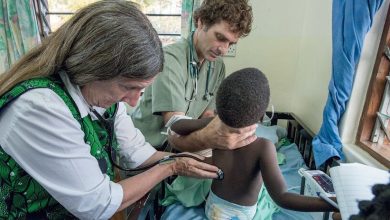Sustaining fight against HIV fight amid aid cuts
Malawi is bolstering efforts to protect progress in the fight against HIV amid sudden aid cuts, especially by the US, which threaten the provision of life-saving services entrenched over decades.
Like many African countries, Malawi has long relied on US support through the President’s Emergency Plan for Aids Relief (Pepfar), but recent budget cuts have disrupted essential services, including HIV testing, counselling and treatment.

The funding uncertainty featured prominently at the International Aids Society Conference on HIV Science held last month in Kigali, Rwanda.
In Malawi, some health facilities have reported shortages of HIV testing kits and shrinking community outreach activities, including those targeting the worst-hit age group—adolescents.
National Aids Commission (NAC) head of coordination and capacity building Tione Chilambe says Malawi expected donor support to decline over time, but not as quickly as it has happened following the shutdown of US Agency for International Development (USAid).
“We knew the money would reduce, but not in such a painful and quick way,” she tells The Nation.
To keep the national response ticking, Chilambe said the government responded by allocating $600 000 (about K1.1 billion) towards HIV treatment and an additional $1.4 million (K2.5 billion) for transporting lab samples used in testing.
A further $290 000 (K508 million) was set aside to hire and train more health workers.
“These efforts have helped stabilise services across the country,” she says.
An internal review by the Ministry of Health shows that over half of HIV services in Malawi are funded by donors. The hugely donor-dependent services include HIV treatment, staffing and data systems.
The quick intervention helped prevent a complete collapse of the national HIV and Aids response.
Across Africa, similar funding challenges have caused a sharp drop in the number of people starting HIV prevention medication (PrEP). Supplies of condoms and lubricants have also dwindled.
In Malawi, health experts fear that progress towards the UNAids 95-95-95 targets could be reversed, slowing the global push to end Aids-related deaths
These targets aim to ensure that 95 percent of people with HIV know their status, 95 percent of those diagnosed with the virus that causes Aids are on treatment and 95 percent of those on treatment achieve viral suppression—a state where the virus can neither be detected nor transmitted.
To reduce dependence on donors, Malawi is turning to local solutions.
Private health providers are now offering free anti-retroviral therapy while churches and other faith-based organisations are supporting HIV testing and awareness campaigns in communities.
The government is also engaging health insurance companies to start covering both treatment and prevention costs.
Experts at the Kigali meeting said countries must find new ways to raise money locally.
This could include introducing special taxes or levies for HIV programmes like Zimbabwe’s Aids Levy, which collects a three percent surcharge on incomes and businesses to fund its national response.
Malawi is also exploring innovative financing models, such as using part of its national debt to support health programmes.
In some countries, this debt-to-health swap approach has raised millions of dollars.
UNAids has warned that if the funding gap is not filled, there could be an additional six million HIV infections and four million Aids-related deaths globally by 2029.
“We cannot let funding cuts wipe out the gains we’ve made,” said UNAids executive director Winnie Byanyima. “This is a moment for countries to step up, own their responses and invest in the health of their people.”
Musa Manganye, head of HIV treatment in South Africa, added that real commitment must go beyond speeches.
“What matters is the budget line. That’s what shows real commitment,” he said.





